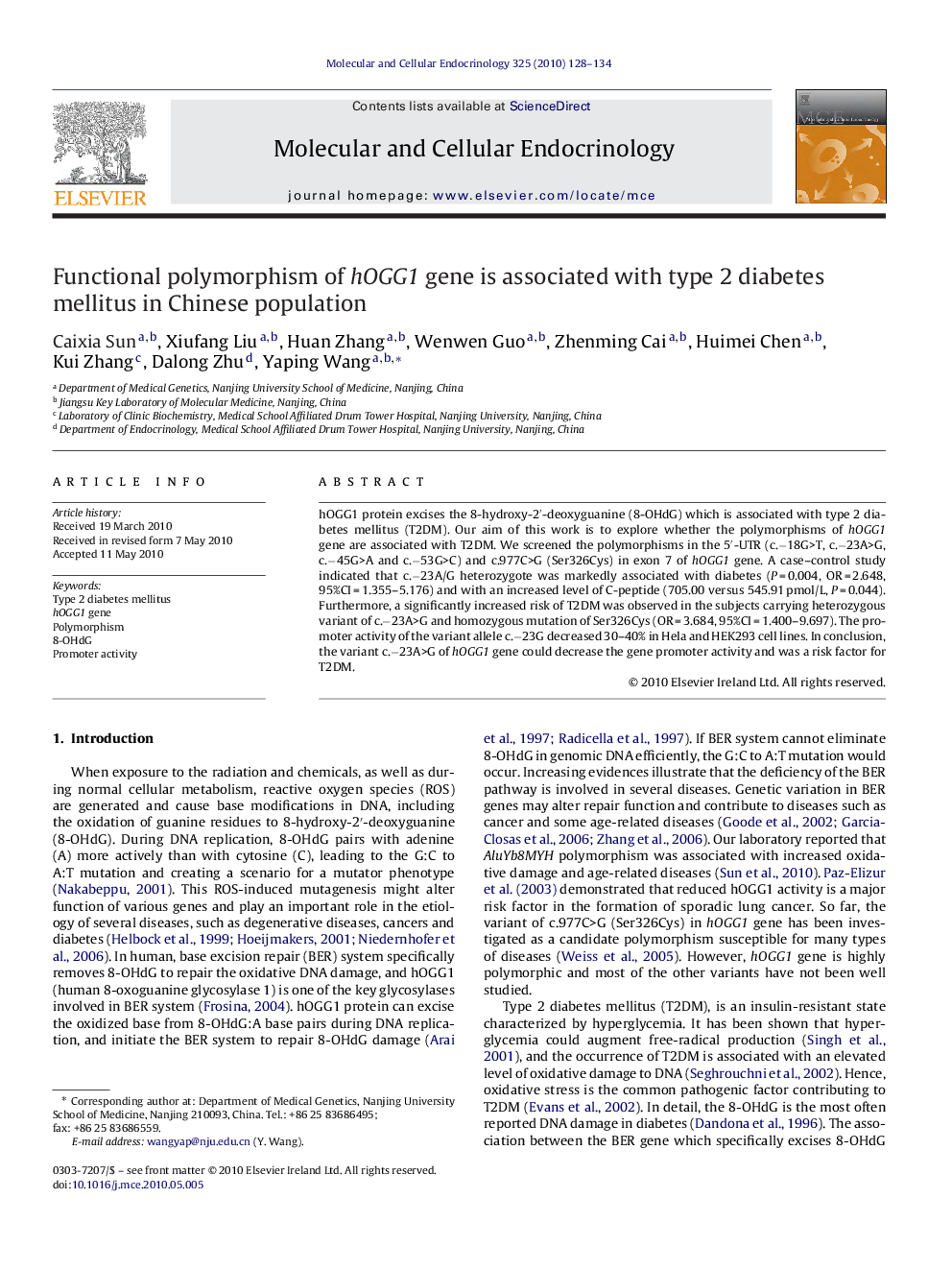| Article ID | Journal | Published Year | Pages | File Type |
|---|---|---|---|---|
| 2196817 | Molecular and Cellular Endocrinology | 2010 | 7 Pages |
hOGG1 protein excises the 8-hydroxy-2′-deoxyguanine (8-OHdG) which is associated with type 2 diabetes mellitus (T2DM). Our aim of this work is to explore whether the polymorphisms of hOGG1 gene are associated with T2DM. We screened the polymorphisms in the 5′-UTR (c.−18G>T, c.−23A>G, c.−45G>A and c.−53G>C) and c.977C>G (Ser326Cys) in exon 7 of hOGG1 gene. A case–control study indicated that c.−23A/G heterozygote was markedly associated with diabetes (P = 0.004, OR = 2.648, 95%CI = 1.355–5.176) and with an increased level of C-peptide (705.00 versus 545.91 pmol/L, P = 0.044). Furthermore, a significantly increased risk of T2DM was observed in the subjects carrying heterozygous variant of c.−23A>G and homozygous mutation of Ser326Cys (OR = 3.684, 95%CI = 1.400–9.697). The promoter activity of the variant allele c.−23G decreased 30–40% in Hela and HEK293 cell lines. In conclusion, the variant c.−23A>G of hOGG1 gene could decrease the gene promoter activity and was a risk factor for T2DM.
